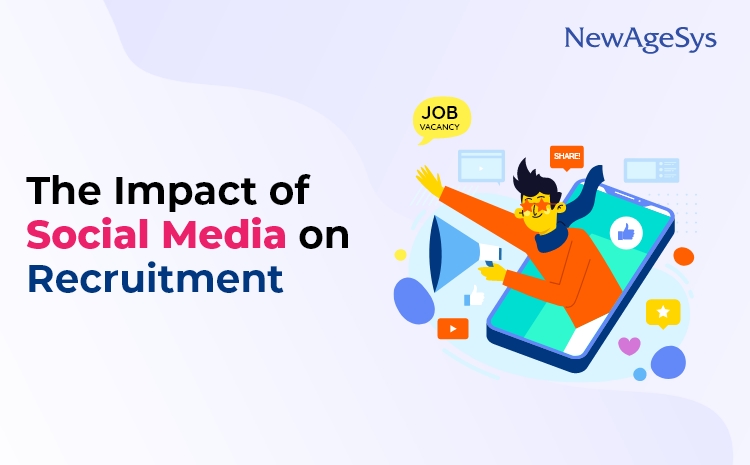
The Impact of Social Media on Recruitment: Leveraging Platforms for Success
Social media platforms have influenced every single business or individual over the years. From sharing personal experiences to staying informed about global events, these platforms have evolved into powerful tools that extend beyond the realm of social interactions. One area where their influence is particularly profound is in the field of recruitment. Companies are increasingly recognizing the potential of social media in finding and attracting top talent. In this blog post, we’ll explore the impact of social media on recruitment and how organizations can leverage these platforms for success.
1. Widening the Talent Pool:
Social media platforms break down geographical barriers, allowing recruiters to tap into a vast and diverse talent pool. Whether it’s LinkedIn, Twitter, or Facebook, these platforms provide access to professionals from various industries and locations. This democratization of talent acquisition enables companies to discover individuals with unique skill sets and experiences that may have been overlooked through traditional recruitment channels.
2. Building Employer Brand:
In the competitive landscape of recruitment, establishing a strong employer brand is crucial. Platforms like Instagram and LinkedIn can be used to share behind-the-scenes glimpses of the workplace, employee testimonials, and success stories. This not only attracts potential candidates but also contributes to building a positive perception of the company among a broader audience.
3. Engaging with Passive Candidates:
Not every qualified candidate is actively seeking a new job. Many potential hires are passive candidates who may not be actively searching job boards but could be enticed by the right opportunity. Social media enables recruiters to engage with these passive candidates by sharing relevant content, participating in industry discussions, and creating a presence that makes their organization stand out.
4. Streamlining the Application Process:
Social media can simplify the recruitment process by allowing candidates to apply directly through these platforms. Some organizations leverage the “Apply Now” features on platforms like LinkedIn, which streamlines the application process and encourages more candidates to submit their resumes. This convenience can result in a higher volume of applications from qualified individuals.
5. Leveraging Data for Informed Decisions:
The analytics tools provided by social media platforms offer valuable insights into the effectiveness of recruitment strategies. Recruiters can track engagement metrics, monitor the performance of job postings, and analyze the demographics of their audience. This data-driven approach allows organizations to refine their recruitment strategies and focus on channels that yield the best results.
6. Fostering Community and Networking:
Social media is not just a one-way communication channel; it’s a platform for building communities and fostering networking opportunities. Participating in relevant groups and forums allows recruiters to connect with professionals in their industry, creating a pool of potential candidates and expanding the organization’s network.
Wrapping Up
In the digital age, the impact of social media on recruitment cannot be overstated. From widening the talent pool to building a strong employer brand, these platforms offer a myriad of opportunities for organizations to find and attract top talent.
As technology continues to evolve, staying abreast of the latest trends in social media recruitment is essential for companies looking to remain competitive and secure the best candidates for their teams. By leveraging these platforms strategically, organizations can not only streamline their recruitment processes but also establish themselves as attractive employers in the eyes of potential hires.


